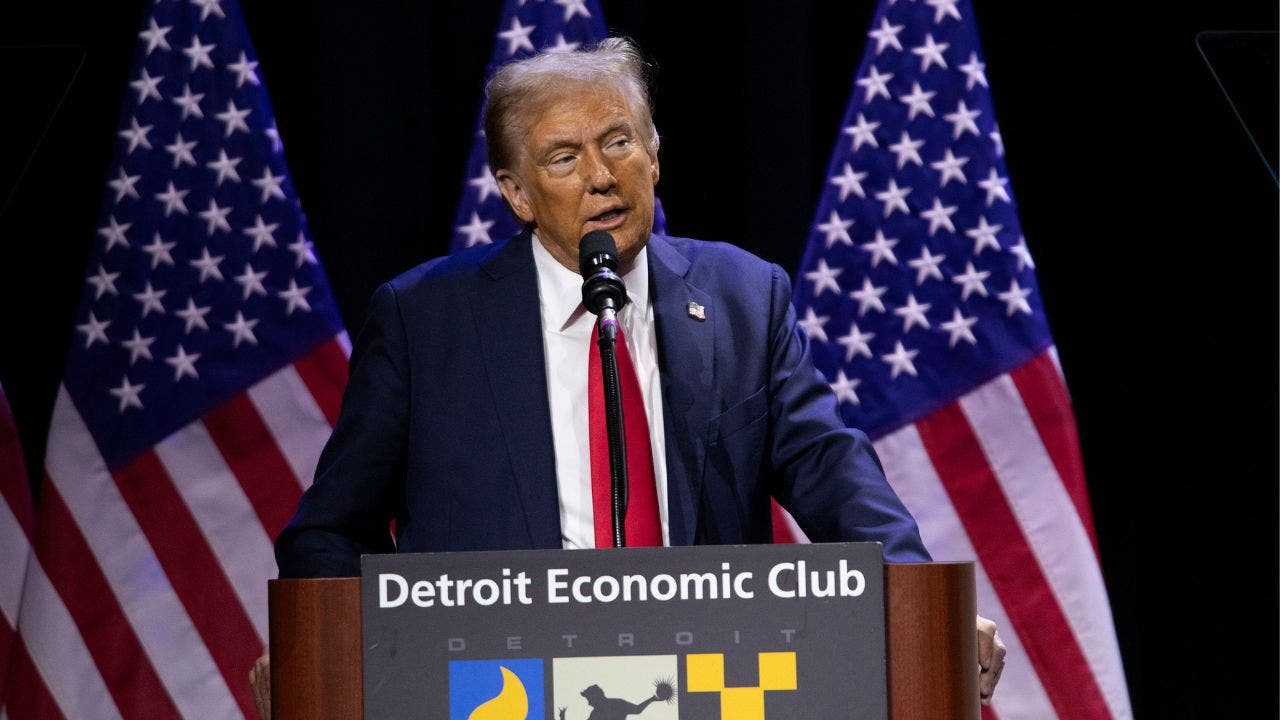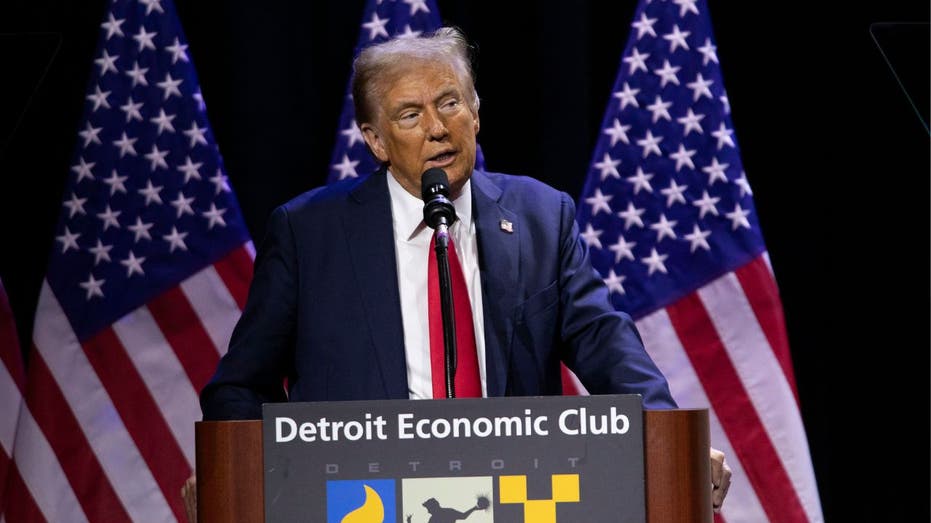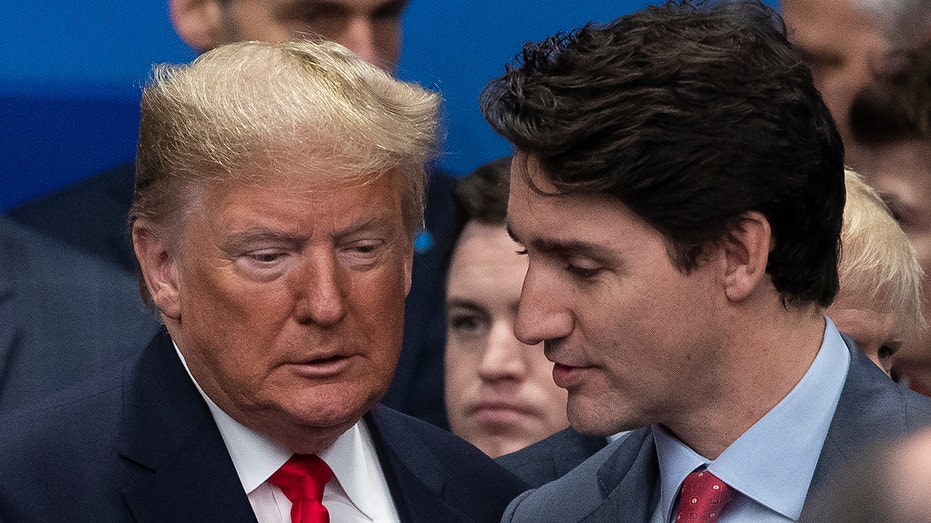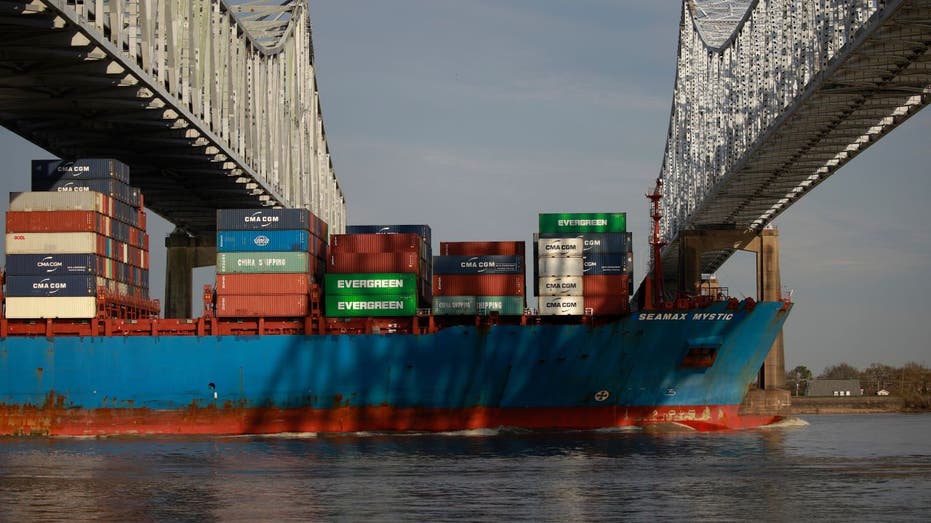
Trump plans 'Foreign Revenue Service' for tariffs paid by US importers
Doug Holtz Eakin, former director of the Congressional Budget Office, explains the impact of the tariffs on Canada's economy and shares his thoughts on President-elect Trump's agenda and House Speaker vote.
President-elect Trump announced plans on Tuesday to create a new “Foreign Revenue Service” tasked with collecting revenue from the tariffs, but economists are pushing back, noting that US importers bear the brunt of the tariffs' cost more than firms abroad.
“For too long, we have relied on the Internal Revenue Service (IRS) to tax our Big People. Through soft and woefully weak Trade Agreements, the American Economy has given the world growth and prosperity while taxing ourselves. It's time for that to change,” Trump said. He wrote on the Truth Social platform.
“I announce today that I will create FOREIGN REVENUE SERVICE To collect our Tariffs, Fees and all Revenues from External sources. We will start paying those who earn money from us with Trade and they will eventually start paying their fair share. January 20, 2025 will be the birthday of the Foreign Revenue Service,” he added.
Tariffs are import taxes paid by the US-based importer to an existing federal agency, US Customs and Border Protection (CBP), in most cases. That dynamic has prompted pushback from economists who say the proposed Foreign Revenue Service's name is an attempt to hide who pays the tariffs.
TRUMP REPEATS REPORT ON CHANGES TO TARIFF PLANS

President-elect Trump has announced plans to create a “Foreign Revenue Service” to collect tariffs paid by US importers. (Bill Pugliano/Getty Images/Getty Images)
“The president-elect may try to sell the higher tariff plan as a foreign tax, but the messaging doesn't change that. higher rates It will be paid by people and businesses that import goods into the United States,” Erica York, vice president of the Tax Foundation, told FOX Business.
“Tariffs are not foreign revenue; they are taxes on U.S. importers that reduce both the U.S. economy and U.S. revenues. Higher tariffs will affect the U.S. economy and threaten to offset the benefits of tax cuts elsewhere, and should not be relied upon as a primary source. tax revenue“, York explained.
TRUMP'S PROPOSED TARIFFS: WHICH DEMAND PRODUCTS COULD BE AFFECTED?

President-elect Trump, seen here with Canadian Prime Minister Justin Trudeau, who recently announced his resignation, campaigned on imposing tariffs on US trading partners. (Dan Kitwood/Getty Images) / Getty Images)
Scott Lincicome, vice president of general economics at the Cato Institute, echoed similar sentiments, telling FOX Business: “The agency name is more of a brand than a substance — and a misleading one at that. In the vast majority of cases, the parties in the U.S. are foreign (“external”). not sources—the U.S. pays the tariffs and bears their economic impact, as several recent studies have confirmed.”
“Declaring tariff revenue 'foreign' would be as misleading as declaring domestic sales tax revenue 'foreign,' because it refers to foreign-made goods sold at a local Walmart. At the end of the day, Trump called it the 'Aliens Pay Tariffs Agency.' can call it, and it still doesn't change the fact that Americans really are,” Lincicome said.
GOLDMAN SACHS: TRUMP TAX CUT, DEREGULATION WILL INCREASE GROWTH; RATES MAY VARY

Tariffs are usually paid by importers to US Customs and Border Protection at the point of entry. (Photo: Luke Sharrett/Bloomberg via Getty Images / Getty Images)
During his successful campaign to return to the White House, Trump touted plans to impose a 10% or 20% general tariff, as well as a 60% larger tariff on goods. Imported from China.
He also threatened to impose a 25% tariff on goods from both sides, Canada and Mexico. United States-Mexico-Canada Agreement (USMCA) – The free trade agreement negotiated by Trump in his first term as the successor to the North American Free Trade Agreement (NAFTA).
His campaign platform include tariff revenues as a source of tax revenue to offset proposed tax cuts and spending plans.
GET THE FOX BUSINESS BY CLICKING HERE
Trump is preparing to hold an inauguration ceremony for his second term as president on January 20. His transition team said he plans to verbally sign. executive orders after taking office, as new presidential administrations often do.
Trump's post on the social network states that the Foreign Revenue Service will be created Inauguration Dayalthough the details of whether this will be done by executive order and how the new agency plans to operate are still unclear.
